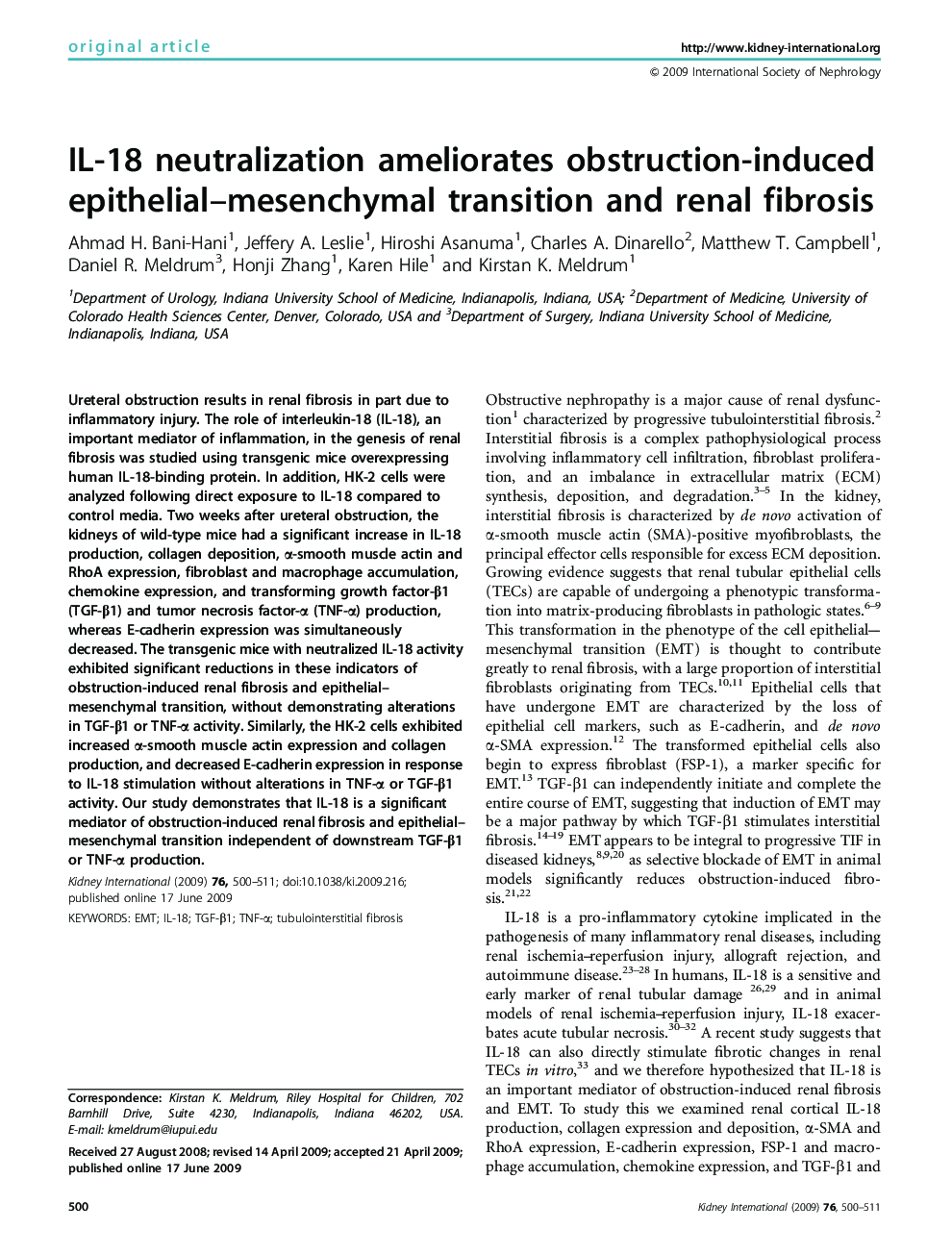| Article ID | Journal | Published Year | Pages | File Type |
|---|---|---|---|---|
| 3885727 | Kidney International | 2009 | 12 Pages |
Ureteral obstruction results in renal fibrosis in part due to inflammatory injury. The role of interleukin-18 (IL-18), an important mediator of inflammation, in the genesis of renal fibrosis was studied using transgenic mice overexpressing human IL-18-binding protein. In addition, HK-2 cells were analyzed following direct exposure to IL-18 compared to control media. Two weeks after ureteral obstruction, the kidneys of wild-type mice had a significant increase in IL-18 production, collagen deposition, α-smooth muscle actin and RhoA expression, fibroblast and macrophage accumulation, chemokine expression, and transforming growth factor-β1 (TGF-β1) and tumor necrosis factor-α (TNF-α) production, whereas E-cadherin expression was simultaneously decreased. The transgenic mice with neutralized IL-18 activity exhibited significant reductions in these indicators of obstruction-induced renal fibrosis and epithelial– mesenchymal transition, without demonstrating alterations in TGF-β1 or TNF-α activity. Similarly, the HK-2 cells exhibited increased α-smooth muscle actin expression and collagen production, and decreased E-cadherin expression in response to IL-18 stimulation without alterations in TNF-α or TGF-β1 activity. Our study demonstrates that IL-18 is a significant mediator of obstruction-induced renal fibrosis and epithelial– mesenchymal transition independent of downstream TGF-β1 or TNF-α production.
